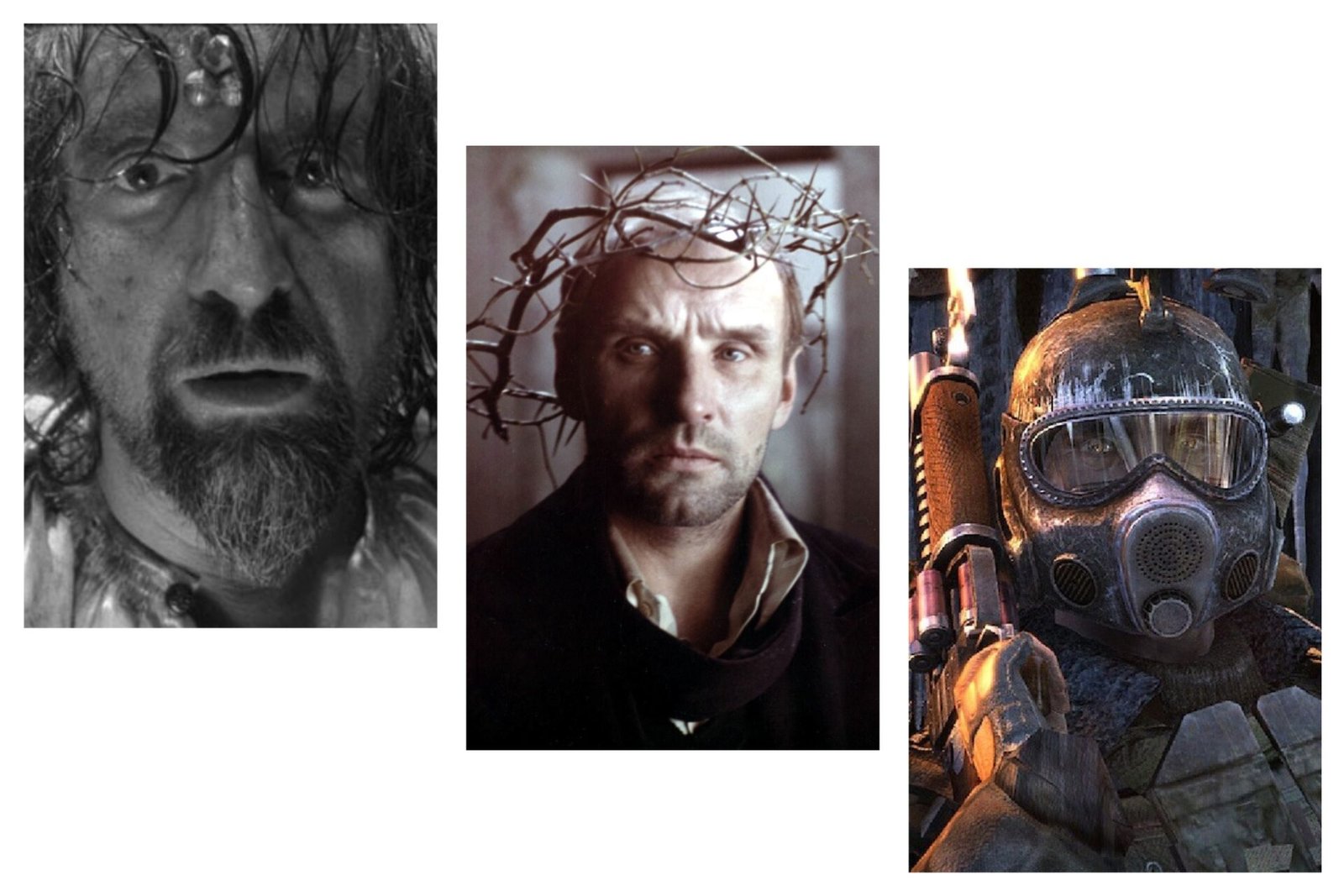Before there was Orwell, there was Zamyatin.
Russian science fiction has long served as a mirror to the nation’s tumultuous history, offering profound insights into societal structures, philosophical quandaries, and the human condition.
From early 20th-century dystopias to post-Soviet allegories, these ten seminal works not only define the genre but also reflect the evolving landscape of Russian thought and politics.
1. Roadside Picnic by Arkady & Boris Strugatsky (1972)


Set in the aftermath of an alien visitation, this novel explores the enigmatic “Zone,” filled with inexplicable artifacts that challenge human understanding. The Strugatsky brothers delve into themes of existentialism and the unintended consequences of technological advancement, reflecting the uncertainties of the Cold War era and the complexities of Soviet society.
What to Read If You Liked This:
– Annihilation by Jeff VanderMeer – Both explore unknowable alien phenomena and the psychological toll of confronting the incomprehensible.
– Solaris by Stanisław Lem – Another cerebral sci-fi adapted by Tarkovsky. About failed communication with an alien intelligence, laced with philosophy.
– The Left Hand of Darkness by Ursula K. Le Guin – For readers drawn to cultural dislocation, moral complexity, and immersive world-building.
Can be bought as an eBook, Audiobook, or paperback on Amazon. Or you can support local here at Bookshop.org:
2. We by Yevgeny Zamyatin (1921)


A pioneering dystopian narrative, We presents a society where individuality is suppressed under the guise of collective harmony. Zamyatin’s portrayal of the One State serves as a prescient critique of totalitarian regimes, predating Orwell’s 1984 and Huxley’s Brave New World. Written during the Russian Civil War, the novel was banned in the USSR until 1988, highlighting its contentious nature.
What to Read If You Liked This:
– 1984 by George Orwell – Directly inspired by We, this builds on Zamyatin’s themes of surveillance and state control.
– Brave New World by Aldous Huxley – A chemically pacified dystopia offers a different angle on freedom and conformity.
– The Trial by Franz Kafka – Bureaucratic absurdity and existential dread echo Zamyatin’s oppressive world.
Can be bought as an eBook, Audiobook, or paperback on Amazon. Or you can support local here at Bookshop.org:
3. Night Watch by Sergei Lukyanenko (1998)
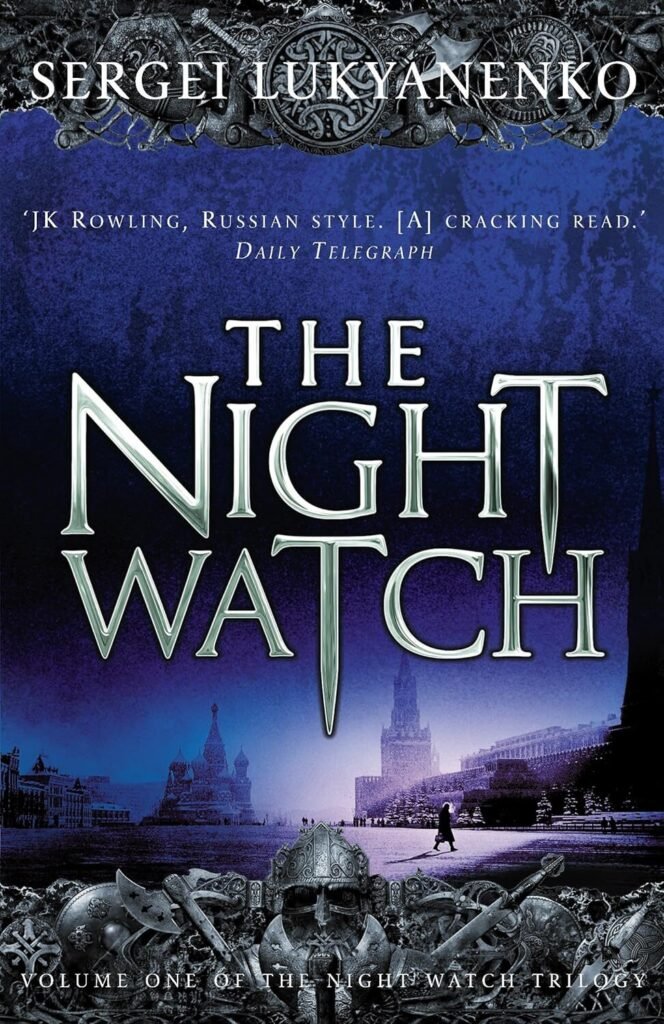
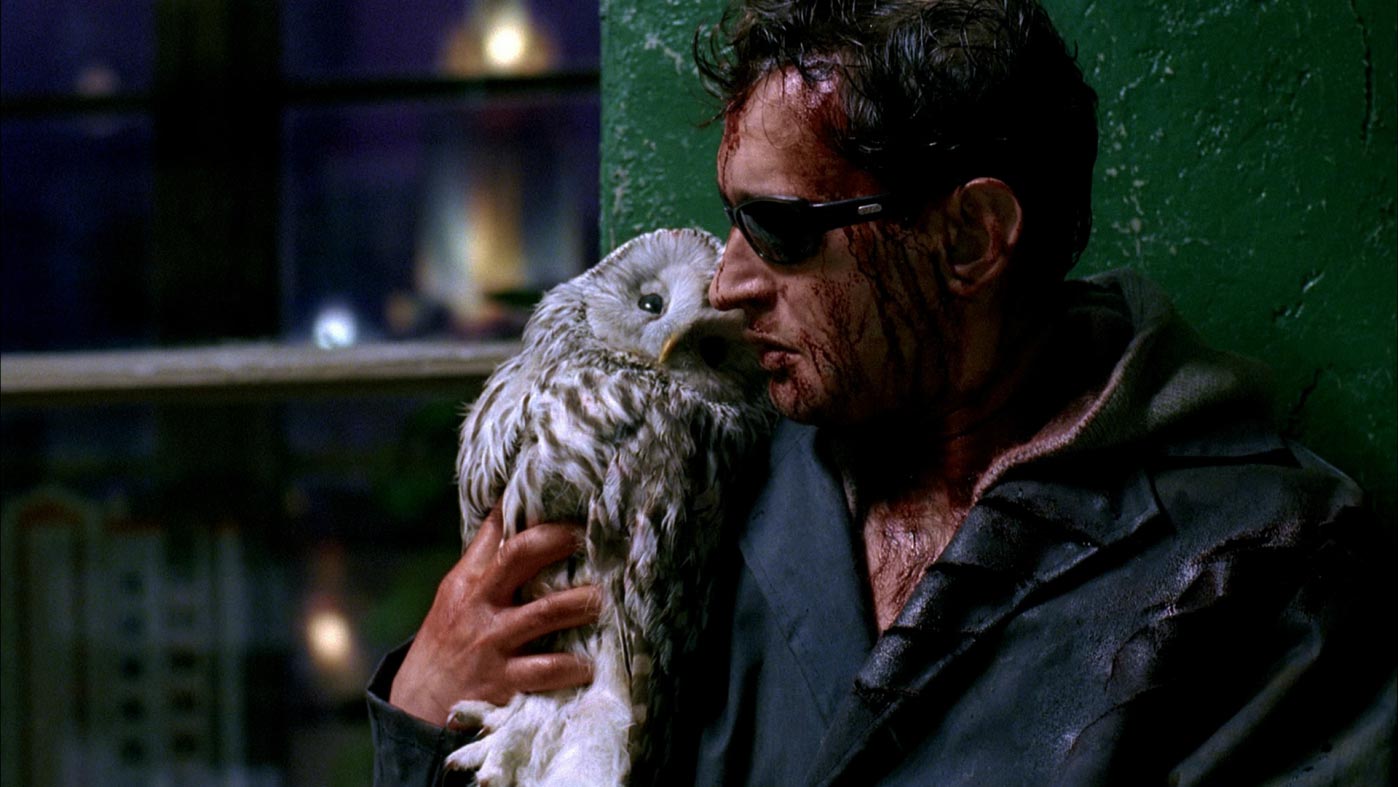
In a post-Soviet Moscow teeming with supernatural beings, Lukyanenko crafts a narrative where Light and Dark Others maintain a fragile truce. The novel reflects the moral ambiguities and societal transformations of Russia in the 1990s, blending urban fantasy with philosophical inquiry.
What to Read If You Liked This:
– The City & The City by China Miéville – A noir detective story with supernatural undercurrents and political allegory.
– The Witcher Saga by Andrzej Sapkowski – Rich world-building and moral ambiguity with Eastern European roots.
– American Gods by Neil Gaiman – Modern-day mythology collides with contemporary settings in a similar tone.
Can be bought as an eBook, Audiobook, or paperback on Amazon. Or you can support local here at Bookshop.org:
4. Metro 2033 by Dmitry Glukhovsky (2002)
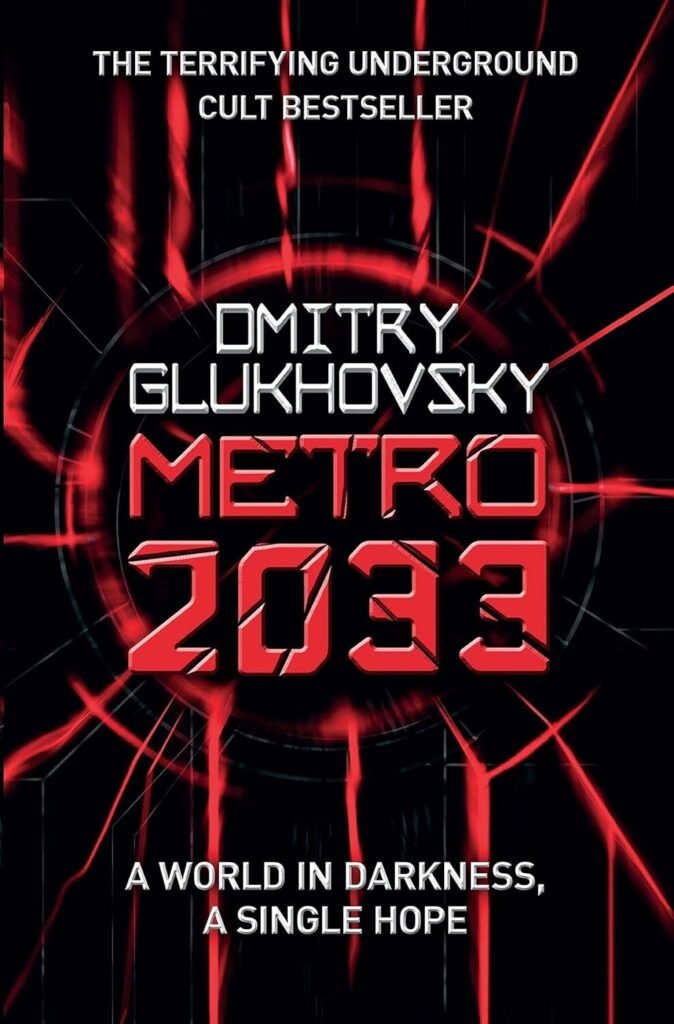
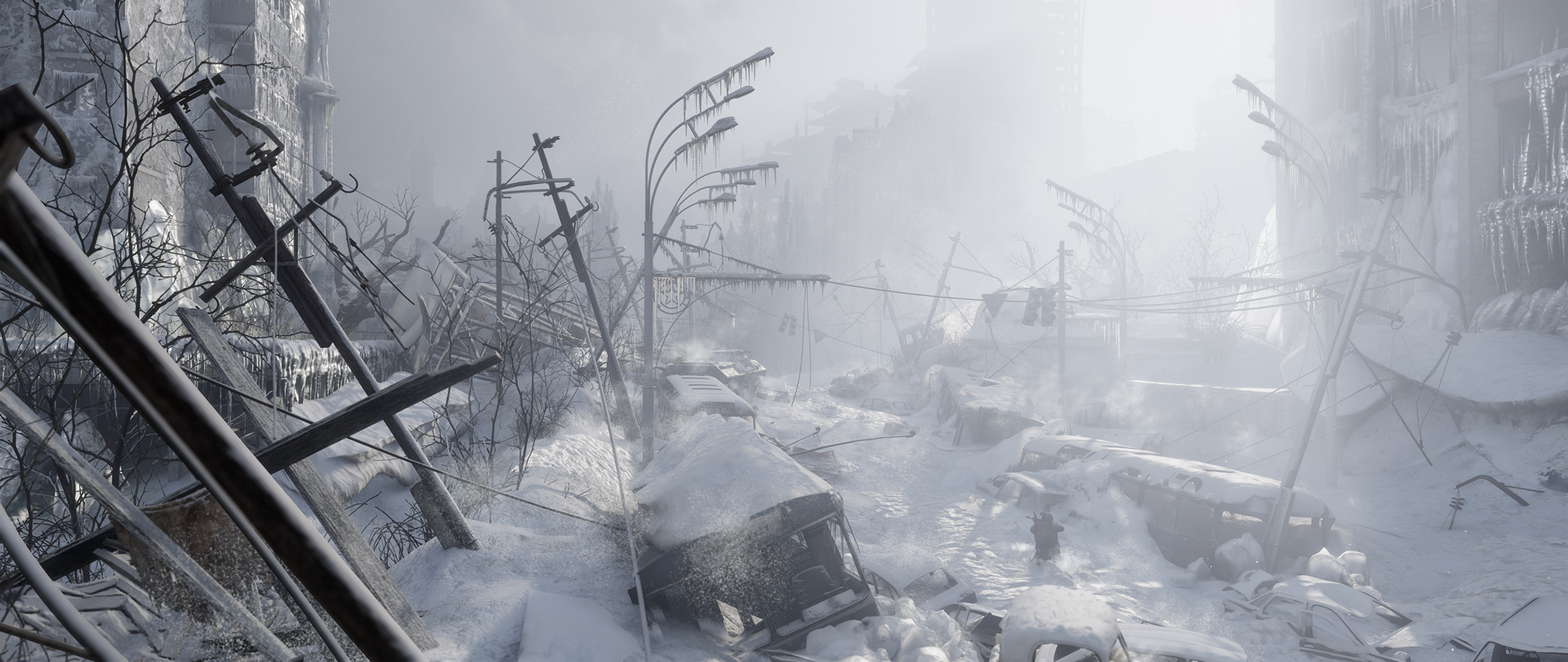
Set in the subterranean tunnels of a post-apocalyptic Moscow, survivors navigate a fragmented society plagued by mutated creatures and ideological factions. Glukhovsky’s work echoes the anxieties of nuclear catastrophe and the disintegration of centralized authority, resonating with the post-Cold War generation.
What to Read If You Liked This:
– The Road by Cormac McCarthy – A bleak, harrowing post-apocalyptic journey with deep emotional resonance.
– S.T.A.L.K.E.R.: Roadside Picnic tie-in novelizations – For fans who want more gritty Eastern European nuclear wasteland stories.
– Wool by Hugh Howey – Life in an underground silo society grapples with isolation, misinformation, and rebellion.
Can be bought as an eBook, Audiobook, or paperback on Amazon. Or you can support local here at Bookshop.org:
5. Heart of a Dog by Mikhail Bulgakov (1925)


Through the transformation of a stray dog into a human, Bulgakov satirizes the Soviet regime’s attempts at social engineering. The novella critiques the Bolshevik ideology and the perils of forced societal change, leading to its censorship until the late 1980s.
What to Read If You Liked This:
– Animal Farm by George Orwell – Satirical allegory of Soviet ideology through animals and transformation.
– The Master and Margarita by Mikhail Bulgakov – More of Bulgakov’s magical realism and political satire in full flourish.
– The Island of Doctor Moreau by H.G. Wells – Explores the ethics of scientific experimentation on sentient creatures.
Can be bought as an eBook, Audiobook, or paperback on Amazon. Or you can support local here at Bookshop.org:
6. Hard to Be a God by Arkady & Boris Strugatsky (1964)
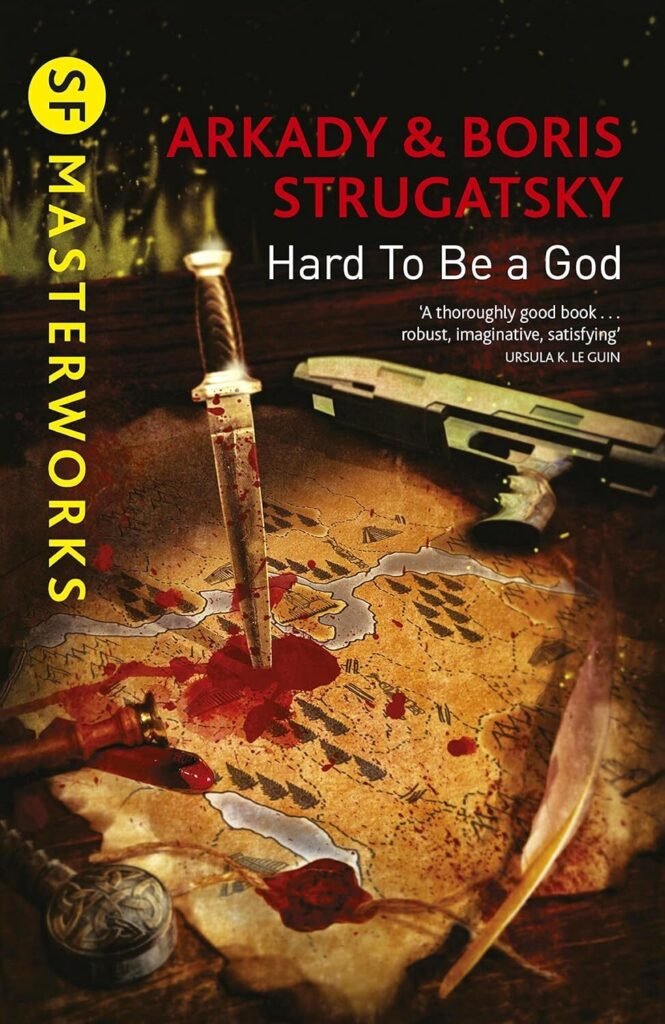

An Earth observer on a primitive planet grapples with the ethical dilemma of intervening in a society on the cusp of enlightenment. The novel serves as an allegory for the Soviet Union’s own struggles with progress and repression, questioning the morality of imposed advancement.
What to Read If You Liked This:
– The Dispossessed by Ursula K. Le Guin – A scientist from an anarchist society confronts capitalist dystopia, mirroring observational ethics.
– The Forever War by Joe Haldeman – War and progress from a removed observer’s perspective.
– Foundation by Isaac Asimov – Psychohistory as a hands-off manipulation of civilization over centuries.
Can be bought as an eBook, Audiobook, or paperback on Amazon. Or you can support local here at Bookshop.org:
7. The Slynx by Tatyana Tolstaya (2000)

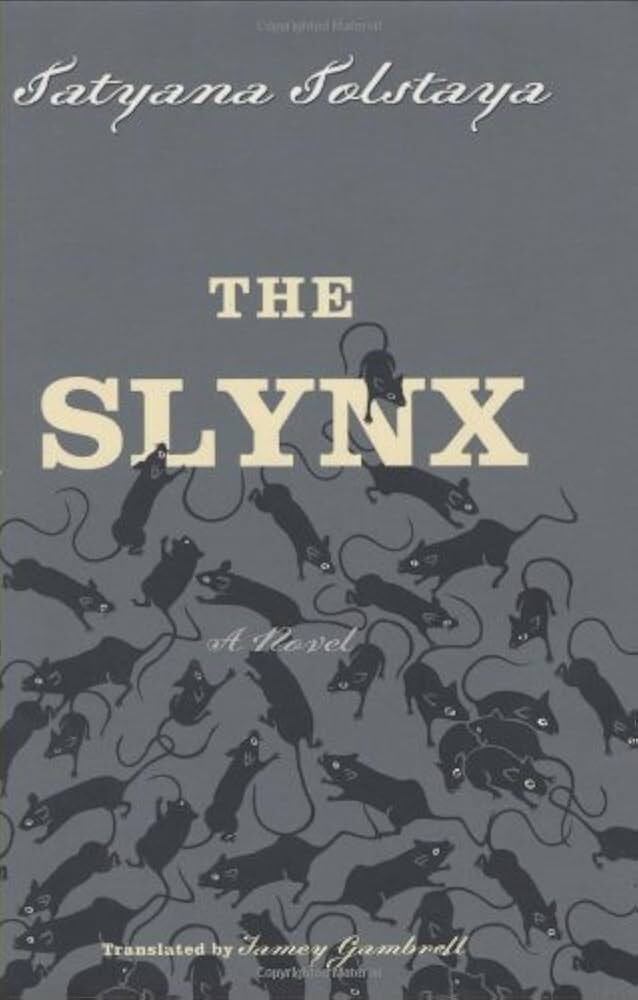
In a post-apocalyptic Russia, society regresses into a feudal state, blending remnants of Soviet and medieval cultures. Tolstaya’s work satirizes the cyclical nature of history and the persistence of authoritarianism, reflecting on the nation’s cultural amnesia.
What to Read If You Liked This:
– A Canticle for Leibowitz by Walter M. Miller Jr. – A future world grappling with relics of a lost civilization and fragmented knowledge.
– Riddley Walker by Russell Hoban – Post-apocalyptic regression and language decay echo Tolstaya’s world.
– MaddAddam Trilogy by Margaret Atwood – Blends satire and speculative collapse with genetically altered survivors.
Can be bought as an eBook, Audiobook, or paperback on Amazon. Or you can support local here at Bookshop.org:
8. The Amphibian by Alexander Belyaev (1928)


This early Soviet science fiction novel follows Ichthyander, a man modified to live underwater. Belyaev explores themes of identity, scientific ethics, and the tension between human ambition and nature, mirroring the era’s fascination with scientific progress and its potential consequences.
What to Read If You Liked This:
– The Sea Lady by H.G. Wells – Early speculative fiction about humans adapting to ocean life.
– The Deep by Rivers Solomon – Merfolk descend from African slaves thrown overboard; both explore hybrid identity.
– Frankenstein by Mary Shelley – The classic meditation on science and its moral consequences, rooted in empathy.
Can be read in PDF at the Internet Archive, or bought as an eBook, Audiobook, or paperback on Amazon. Or you can support local here at Bookshop.org:
9. Omon Ra by Victor Pelevin (1992)

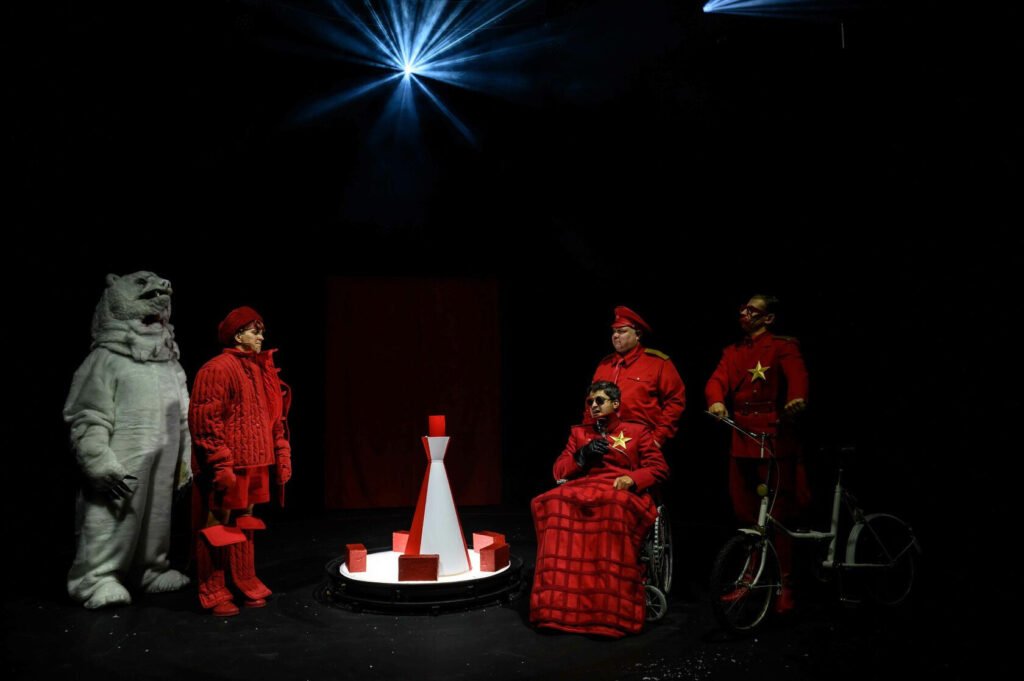
Pelevin’s satirical narrative critiques the Soviet space program, revealing the absurdities and deceptions of state propaganda. Through the protagonist’s journey, the novel examines the individual’s role within oppressive systems and the disillusionment with ideological constructs.
What to Read If You Liked This:
– Slaughterhouse-Five by Kurt Vonnegut – Satirical sci-fi that blends absurdism and trauma in a critique of war and state narrative.
– Catch-22 by Joseph Heller – Bureaucratic madness and fatalistic humor mirror Pelevin’s tone.
– Red Plenty by Francis Spufford – Historical fiction set in the USSR, ideal for readers curious about Soviet techno-utopianism.
Can be bought as an eBook, Audiobook, or paperback on Amazon. Or you can support local here at Bookshop.org:
10. Empire V by Victor Pelevin (2006)
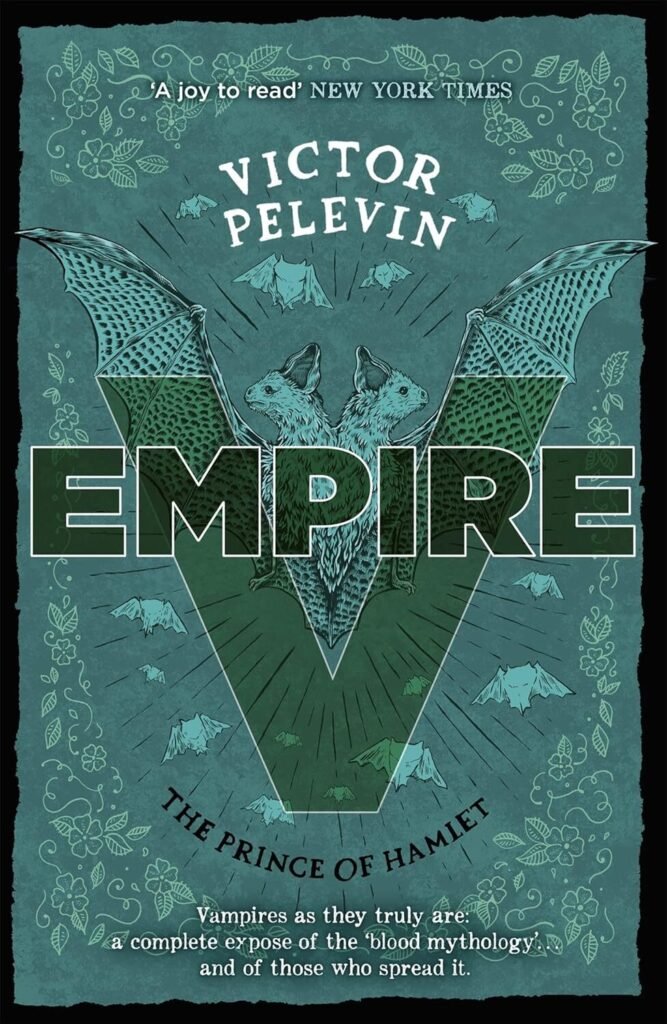

In this darkly comic tale, vampires symbolize the elite manipulators of society, feeding off human energy and shaping culture. Pelevin offers a scathing examination of consumerism and the mechanisms of power, reflecting on Russia’s transition into a capitalist society and the moral decay accompanying it.
What to Read If You Liked This:
– Snow Crash by Neal Stephenson – A cyberpunk takedown of late-stage capitalism and media manipulation.
– American Psycho by Bret Easton Ellis – Both offer darkly satirical portraits of power, consumerism, and identity.
– The Atrocity Exhibition by J.G. Ballard – Fragmented postmodern narrative with similar themes of cultural rot and hyperreality.
Can be bought as an eBook, Audiobook, or paperback on Amazon. Or you can support local here at Bookshop.org:
These ten works exemplify the depth and diversity of Russian science fiction, each offering a unique lens through which to examine the nation’s historical and cultural evolution. Through speculative narratives, these authors challenge readers to reflect on the complexities of societal structures, the consequences of ideological extremities, and the enduring quest for individual autonomy.
P.S. If you want to check out some of the movie adaptations, you can watch a couple on YouTube for free like We and Stalker.
Plus Mubi often has some of the obscure ones too. You can get a 30 day free trial with my referral link.
